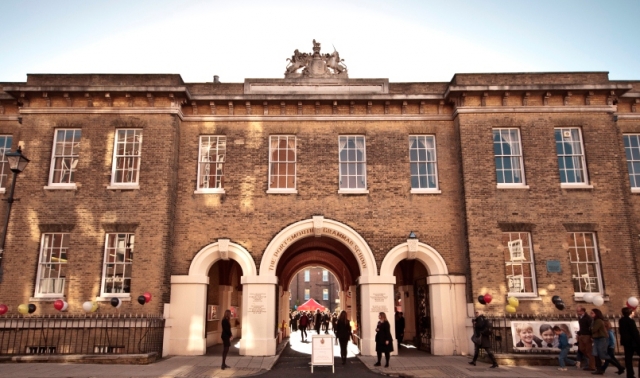What made Portsmouth Grammar a QM gold school?
By Tim Lomas, Quality Mark Assessor

QM assessor Tim Lomas awarded Portsmouth Grammar School a gold QM award in the summer of 2016. Here he discusses some of the things that most impressed him about history provision at the school.
One could argue that the context and access to resources of this particular school allows for a good chance of success, but this is the wonderful thing about the QM framework in that schools are free to interpret and are assessed according to their contextual background and the resources they have at their disposal.
There is strength in depth at this school and many aspects could easily be noted as good practice. This article refers to just two aspects that could be easily replicated or adapted in other contexts.
1. What is on offer to the students
Like many academies, free schools and independent schools, the school does not have to follow the National Curriculum but it does adopt many aspects of it but develops it in a way that provides variety, relevance and coherence.
A key feature is the linkages which occur on several fronts:
- The linking of content, skills and conceptual understanding is very apparent.
- The appropriate rather than contrived links with other subjects such as the cross-curricular “Portsmouth curriculum” and joint projects with English, psychology and science.
- The links made between local, national and global history.
- The units and their enquiries are sometimes linked by some synoptic work.
- The department believes strongly in linking the past with the present so that students see the relevance to the modern world. The end result is an enjoyment of the subject. Interviews with a range of students revealed very high levels of enjoyment and fascination with the subject. This was not just the nature of the cohort. Most who were transferred from other schools spoke of a new enjoyment which they did not have before.
It is little wonder that history is an extremely popular option at Key Stage 4 and post-16. The popularity also means a large choice – two GCSE specifications are offered and two at A-level as well as the International Baccalaureate where history is a prominent component.
These aspects are supplemented by variety. Teaching involves a range of methods – whole class, paired and individual work. There is much emphasis on research and enquiry. Older students in particular are expected to read and prepare for lessons. Homework is taken seriously and students are regularly introduced to academic scholarship. Outside of lessons there is plenty of enrichment with a history society, a history film club and even historiography clinics for older students.
This does not happen by accident. The department has very carefully considered the rationale for the curriculum and works hard to achieve and develop it.
2. Strong departmental leadership
The senior management team in the school recognised that this is a well-led and strong department, with the word 'vibrant' being used a number of times on the assessor’s visit. Although the leadership and management is helped by a large, well-qualified teaching team, there is still the challenge of motivating and sustaining a range of teachers at different stages of their career as well as those who have other significant roles in the school. In part this is done by encouraging initiative within a framework and focusing on improvement rather than bureaucratic paperwork. In part the motivation and commitment is achieved on the basis of mutual respect and support for development. Those in the department are encouraged to develop their expertise through activities such as external examination marking, writing articles and running training sessions outside the department.
A key focus of the leadership is consistency. Assessment and monitoring is a high priority but not in a way that undermines and threatens teachers. The awareness of what is going on in the department and what is needed to develop things further is also testament to effective leadership and management. When regular departmental meetings take place, great care is taken to follow up actions. Any evidence is made use of to inform action including parental feedback at parents’ evenings. Leadership also aims to be outward looking. The relationship with other departments is excellent but also with other schools including some primaries.
This level of commitment and provision is possible to identify, replicate, adapt or interpret in other contexts, so if what is outlined here seems to fit with what you do in your school, or feels entirely possible to achieve, then why not think about an HA Quality Mark?

